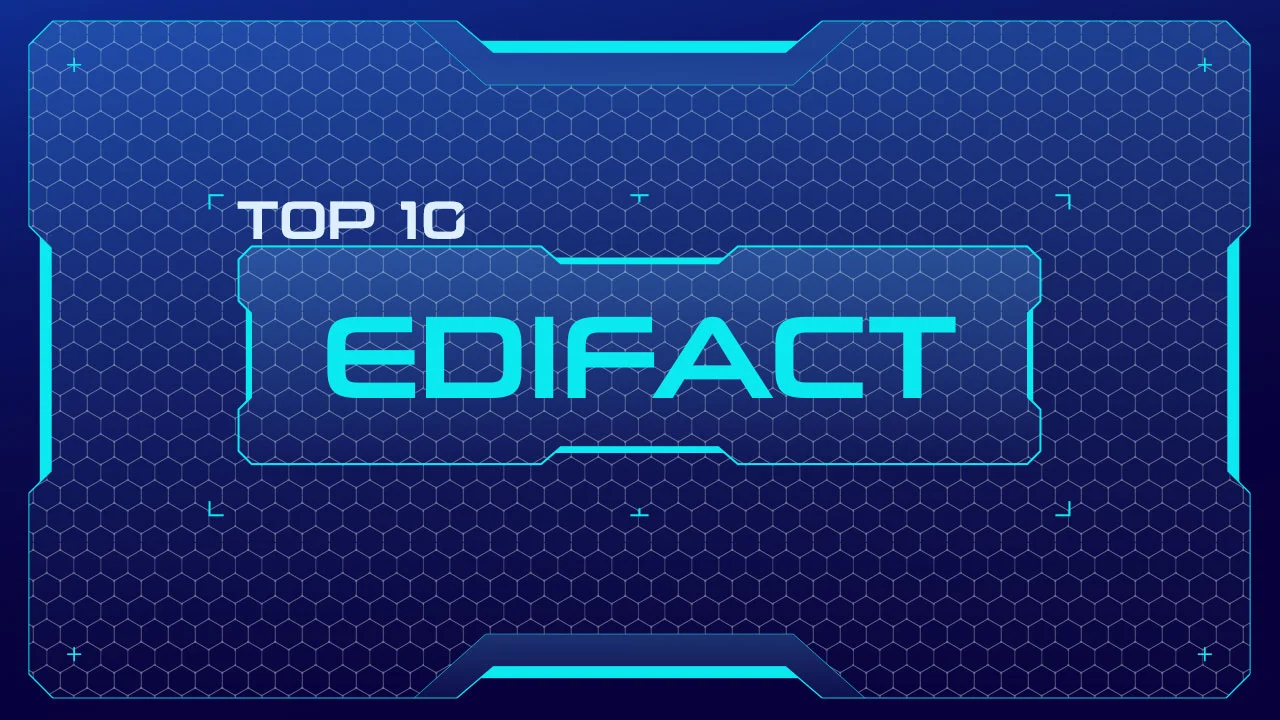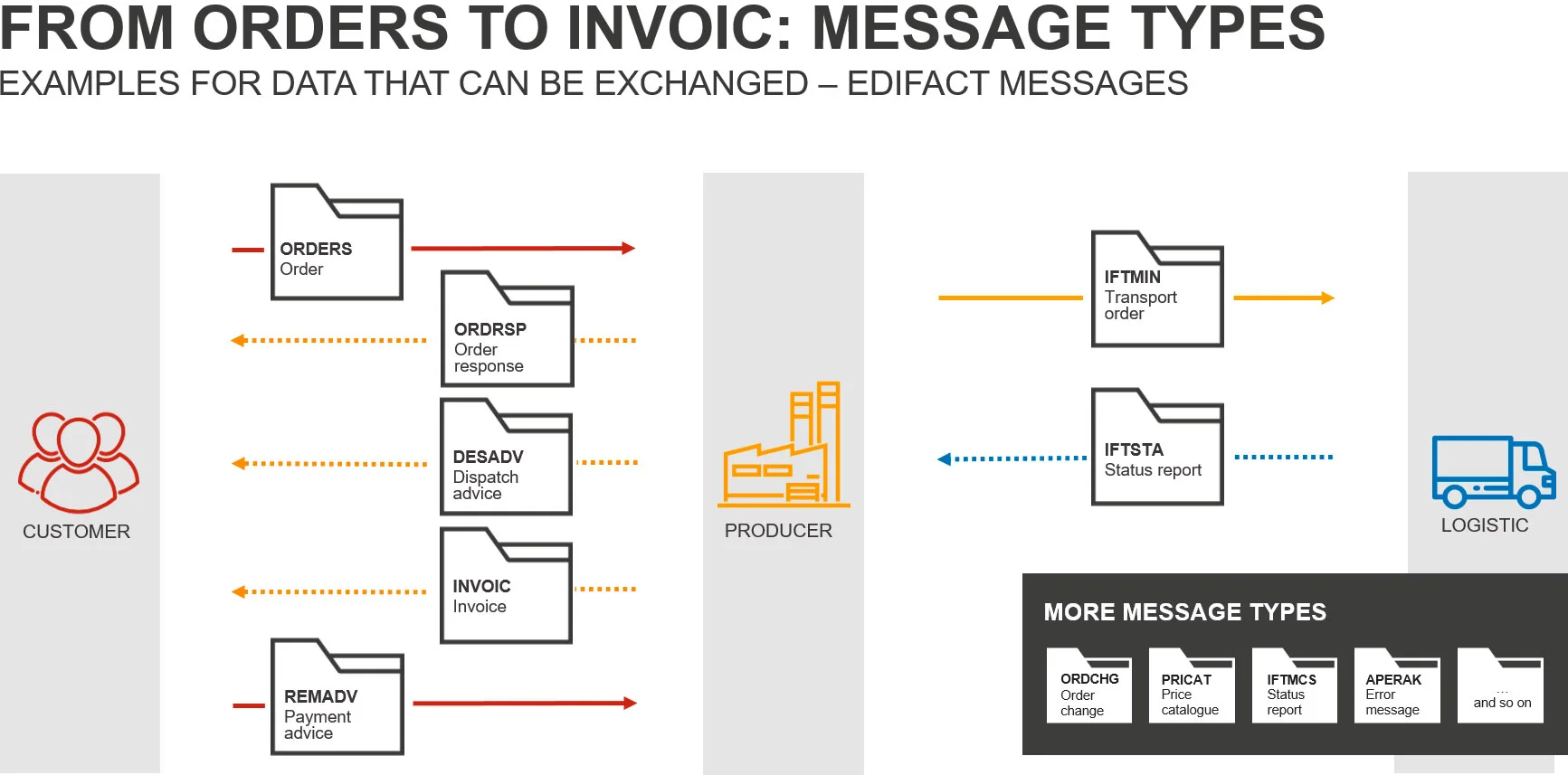Blog
In our blog you will find many exciting articles about i‑effect®, EDI and IBM i. If you have suggestions for a topic that interests you, we look forward to your suggestions.
The top 10 EDIFACT standards and most commonly used message types
Abstract - EDIFACT has become the global standard for data transmission and has now become established in almost all sectors. The most varied business processes can be mapped with it and there is a corresponding message type for almost every exchange process - to date over 200 so-called EDIFACT message types have been defined.
Friday, 13. March 2020
The United Nations Economic Commission for Europe (UNECE) publishes new EDIFACT versions, the so-called directories, twice a year. New EDIFACT messages are included in these directories or existing ones are updated. Since each industry has its own requirements and business cases, numerous industry associations have tailored the EDIFACT directories to the needs of their own clientele.
There are now over 20 of these so-called subsets. Among the most important are
- CEFIC (chemical industry)
- EANCOM (consumer goods industry)
- EDI@Energy (energy industry)
- EDILEKTRO (electrical industry / electrical wholesale trade)
- EDITEC (sanitary sector)
- EDITEX (textile industry)
- EDITRANS (transport industry)
- EDIWHEEL (tyre and wheel manufacturer)
- ODETTE (Association of the Automotive Industry)
- RINET (insurance industry)
In EDIFACT there are, following the standardization concept, uniform message types (United Nations Standard Message = UNSM). At the same time, new message types for industry-specific purposes have been created within the subsets. In the textile industry or in trade in general, for example, a PRICAT (price list/catalogue) is often sent to obtain further information about a product. However, this output type can also be found in other areas. In the energy sector (EDI@Energy), on the other hand, there is UTILMD (master data on customers, contracts, and points of delivery), and in the automotive sector there is ASN (advance shipping notice). These are essentially only used there and in no other industries.

Certain message types are used across industries, that is, in all subsets equally. They represent the most common document flows of a business process, which are found in all branches of industry. The company can choose whether to use only one specific output type or the entire EDI "bouquet".
The most common messages are:
- ORDERS (purchase order message)
- ORDRSP (purchase order response message)
- INVOIC (invoice)
- DESADV (despatch advice = shipping notification, i.e. announcement of a warehouse or goods delivery; analogous to ORDERS or ORDERSP in ordering)
- PRICAT (price catalogue message)
- INVRPT (inventory report)
- SLSRPT (sales report)
- IFTMIN (instructions of transport)
- IFTSTA (status of transport)
- DELFOR (delivery forecast)
For the sake of completeness, these message types should not be left unmentioned:
- APERAK (application error and acknowledgement message)
- CONTROL (syntax check and feedback on arrival of the message)
- IFTMCS (instruction contract status message = sending cargo manifests)
- ORDCHG (purchase order change request message)
